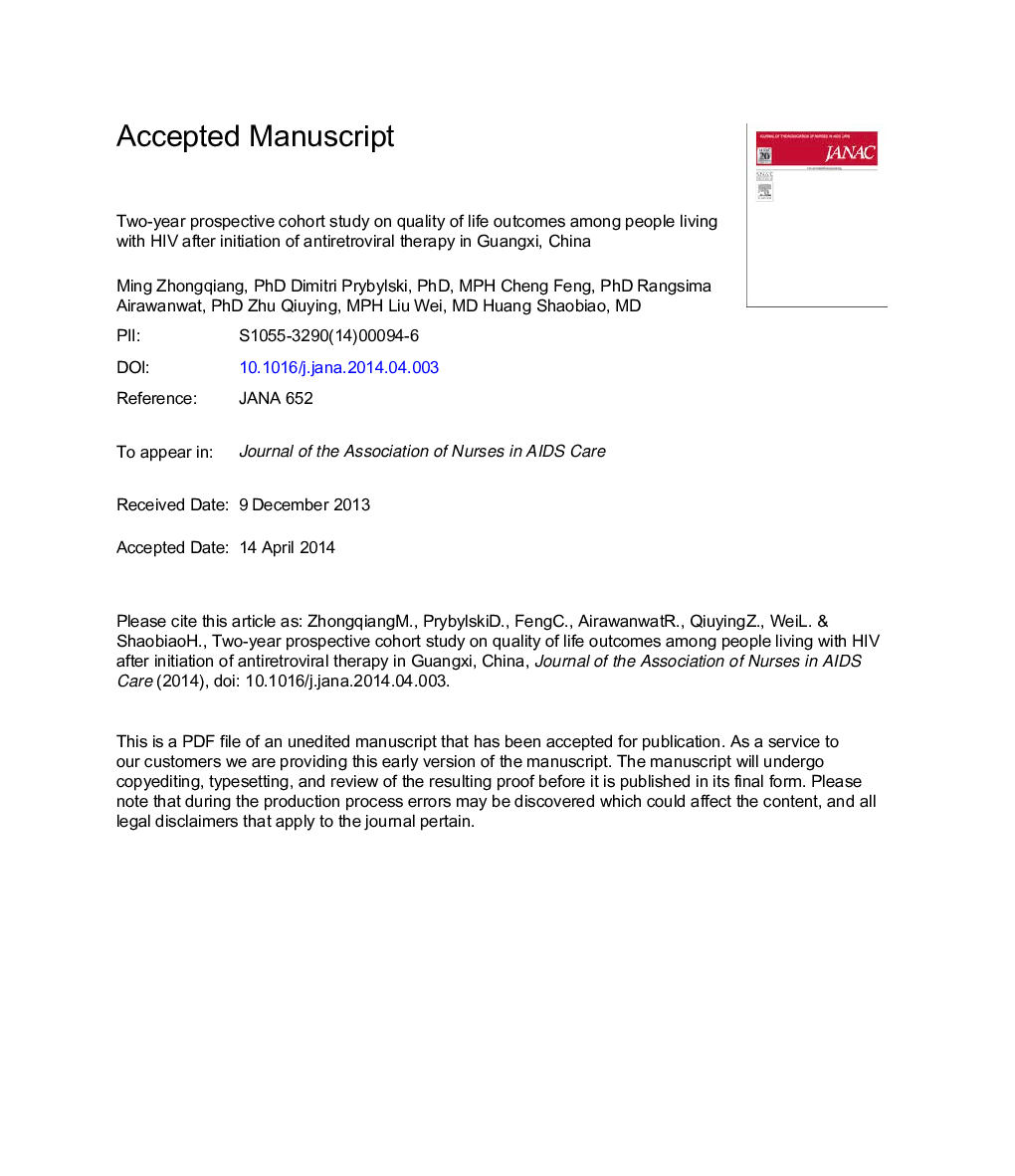| Article ID | Journal | Published Year | Pages | File Type |
|---|---|---|---|---|
| 5870253 | Journal of the Association of Nurses in AIDS Care | 2014 | 28 Pages |
Abstract
The long-term impact of antiretroviral therapy (ART) on quality of life (QOL) is not well understood in China. From 2007-2008, 332 treatment-naïve, HIV-infected adults from five hospitals in Guangxi were enrolled in a 2-year prospective cohort study. Information was collected at the time of ART initiation and during 6-, 12-, and 24-month follow-up visits. Significant improvements were observed across all QOL domains during the first 6 months on ART as measured using the WHOQOL-HIV BREF instrument. These were closely tracked by increases in CD4+ T cell counts, total lymphocyte counts, and the Karnofsky performance scores (p < .05). After 6 months, improvements were smaller and uneven across QOL domains; social relationships was the only domain to not significantly improve at 24 months compared to baseline. Poorer and socially isolated participants had lower QOL outcomes. Strengthening ART program interventions to increase social support for patients may increase QOL outcomes.
Related Topics
Health Sciences
Medicine and Dentistry
Infectious Diseases
Authors
Zhongqiang PhD, Dimitri PhD, MPH, Feng PhD, Rangsima PhD, Qiuying MPH, Wei MD, Shaobiao MD,
